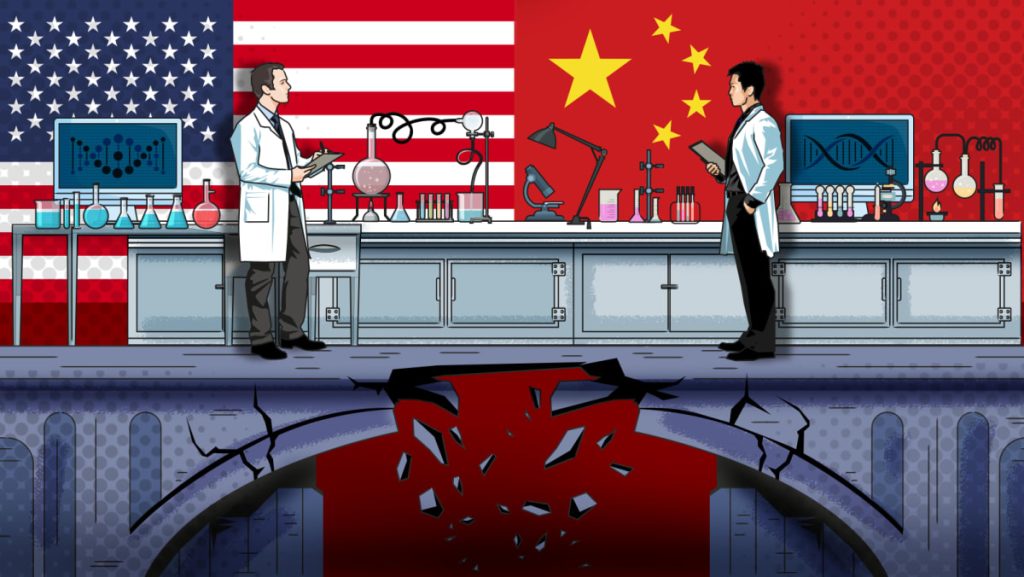US-China scientific collaborations have been on the decline even before the Science and Technology Agreement lapsed, following increasing geopolitical tensions. The proportion of joint publications between the two countries peaked in 2019 before dropping in subsequent years. Research papers published by various institutions have highlighted this trend, with political tensions being cited as the primary reason for the decline in cooperation.
The China Initiative, launched by the Trump administration in 2018, further strained US-China scientific partnerships. The program targeted scientists suspected of connections to Beijing, raising concerns about breaches of national security related to sensitive scientific information leaks. Cases involving Chinese professors under the Economic Espionage Act were more likely to be publicized and met with harsher punishments compared to non-Asians, with some being falsely accused.
While the Biden administration officially ended the China Initiative in early 2022, analysts believe that its impact continues to linger. Universities have become extra cautious in avoiding legal risks when collaborating with Chinese scientists. Concerns about potential legal liability and suspicions of collaborations with Chinese researchers have led many researchers to avoid applying for federal grants, impacting the funding for basic research in the US.
The Stanford Center on China’s Economy and Institutions published a study in July revealing that the number of Chinese-born scientists leaving the US has surged by 75 per cent since the inception of the China Initiative, with many relocating to China. This brain drain has raised concerns about the potential loss of talent from the US. Dr Reyes from HKU noted that the cautious approach taken by institutions has made nearly every field of research a potential legal risk due to the fear of being repurposed by China for hostile use.
Despite the end of the China Initiative, tensions continue to impact US-China scientific collaborations. A broader, “threat-driven” strategy targeting countries like Russia, Iran, and North Korea has been adopted by the Biden administration. However, the aftermath of the China Initiative has left a lasting impact, with researchers and institutions still wary of potential legal risks and suspicions surrounding collaborations with Chinese counterparts. The significant decline in joint publications and collaborations between the two countries reflects ongoing political tensions and uncertainties in the scientific community.
The overall trend of decreasing US-China scientific cooperation has been attributed to political tensions rather than the COVID-19 pandemic. Research papers have highlighted the drop in collaboration since 2019, indicating a significant shift in the dynamics between the two countries. Analysts argue that the challenges faced by universities and researchers in navigating the legal landscape and maintaining collaborations with Chinese counterparts have led to a decline in joint publications and funding for basic research in the US.


